#study plan
Text
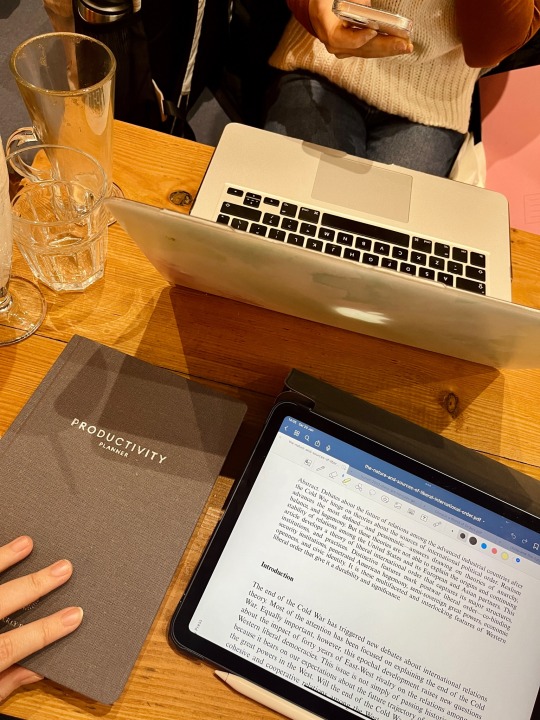


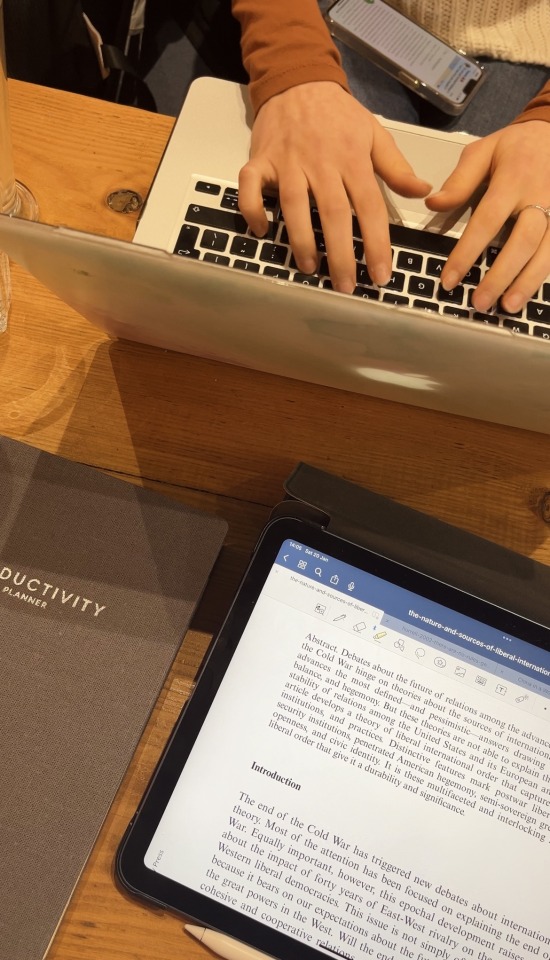
20|01|2024
saturday study dates <3
#studyblr#notes#studyspo#study notes#study motivation#light academia#cafe aesthetic#cafe study#study with me#knife gang#study space#dark academia#study plan
914 notes
·
View notes
Text
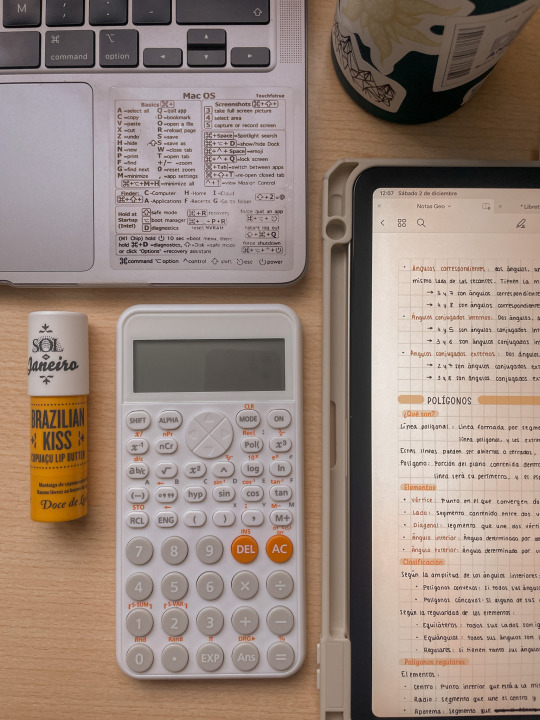
– Saturday studies!
Being behind in my classes means that Saturdays aren't so much for resting and relaxing but for studying and catching up as much as possible. I hope you all have a great weekend!
#study motivation#studyblr#notes#new studyblr#study blog#studying#books and libraries#small studyblr#study plan
655 notes
·
View notes
Text
Affirmations i use to study/get things done!
"You've prepared the whole year for this. Don't let it go to waste."
"I can and I will."
"It doesn't matter how hard it takes to reach my goal."
"It doesn't matter if the other person is more talented than you. There's no rule for them to work more harder than you."
"You can wake up anyday and decide to change the person that you are."
"Who cares if I'm pretty if I fail my finals?"
"One day, you'll leave this world behind so live a life that you'll remember."
"If it's a million to one. I'm gonna be that one.”
"You can't be perfect. No one can. But you can try to be the best."
"Failure is a part of success. Use it in the best way possible."
"You are more than capable of handling yourself and your textbooks."
"Study like you haven't prayed and pray like you haven't studied."
"You came this far only to come this far?"
"There is no way I'm going to come back with something I don't like."
"Study because learning is better than being ignorant."
"Grades aren't everything but they do make your life somewhat easier."
"I know more than i think I do."
“There are no shortcuts to any place worth going.”
"Progress > Perfection."
"You're doing this for you. Only you. Don't forget that."
#studyblr community#studybrl#study productivity#study plan#study progress#studyinspo#study inspiration#study session#studyspiration#studying inspiration#studying inspo#Study#100 days of productivity#study motivation#studyblr#quotes#studyspo#studying#study blog#study goals#study motivator#student#harsh studyspo#study aesthetic#bella_studies#motivation#motivating quotes#quoteoftheday
224 notes
·
View notes
Text
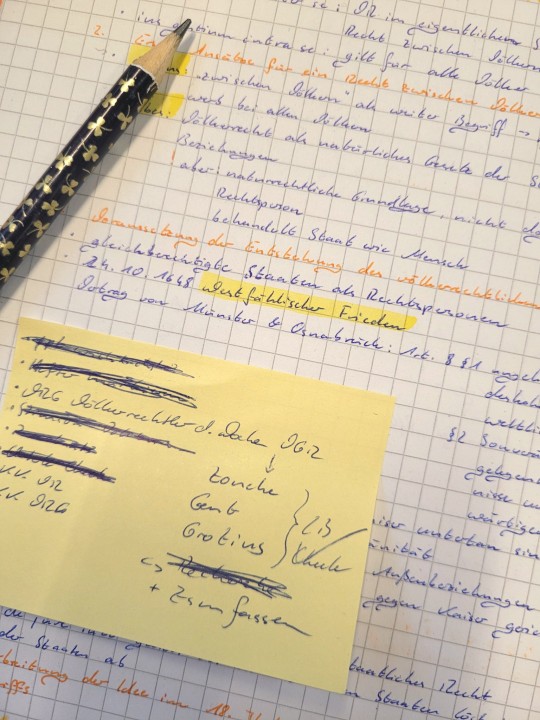
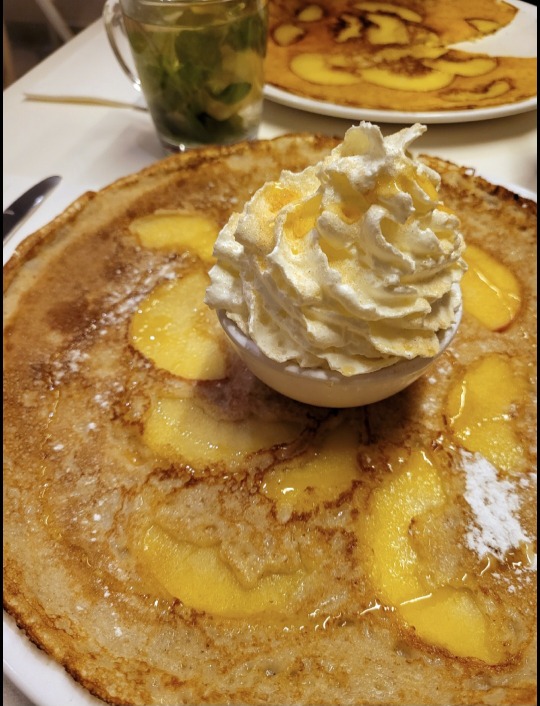
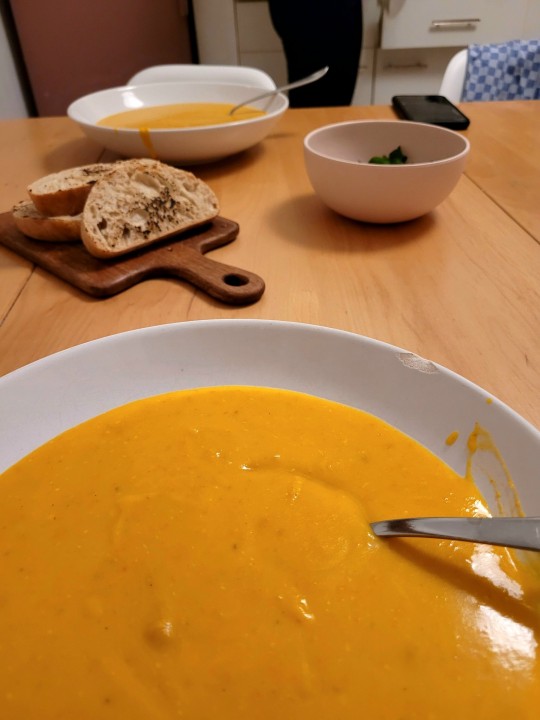
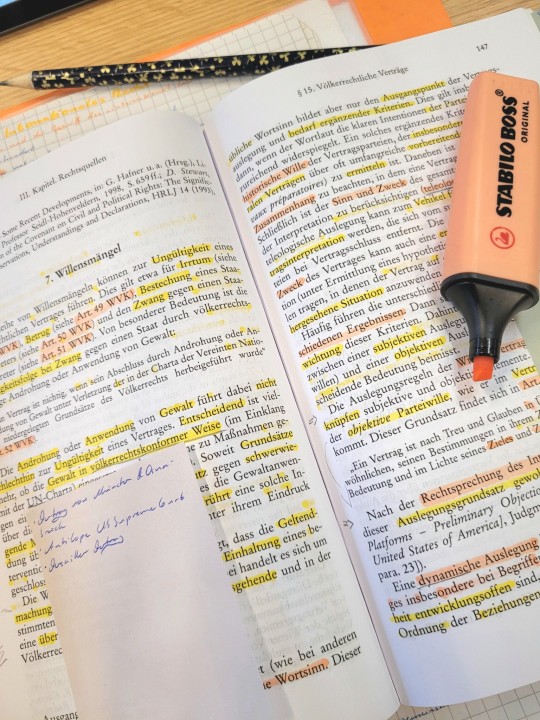
food for thoughts I guess 🥞📖
#studyblr#studyspo#university#study plan#lawblr#study motivation#books#pancakes#study space#law student#law studyblr#pumpkin soup
228 notes
·
View notes
Text
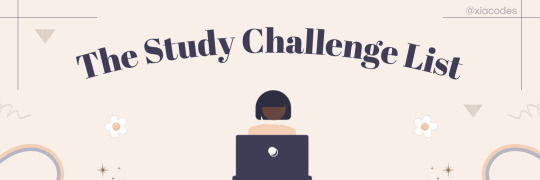
Studying can be a daunting task, especially when we're not feeling motivated or don't know where to start. Luckily you are on Tumblr, where the Tumblr Studyblr community lives!
A group of individuals who share their study tips, techniques, and challenges to help motivate and inspire others.
As a member of this community, I've compiled a master post of study challenges created by Studyblr bloggers. These challenges aim to help students stay on track, improve their focus, and achieve their academic goals. So you can join in and start achieving your academic potential!
>> 𝐍 𝐨 𝐭 𝐞
If you know any other challenges or you've created ones yourself and want to share them, do message me with the link to the post so I can update the list! I too will be creating some, more coding-related ones as I am a coding studyblr (codeblr) blog! That's all and hope you find a challenge you'd like to start!

@tranquilstudy's Studyblr Challenge - 𝒍 𝒊 𝒏 𝒌
@sub-at-omic-studies' Study Challenge - 𝒍 𝒊 𝒏 𝒌
@wecandoit’s Study Challenege - 𝒍 𝒊 𝒏 𝒌
@cheereader's The “Back To College” Study Challenge - 𝒍 𝒊 𝒏 𝒌
@myhoneststudyblr's The Studyblr Community Challenge - 𝒍 𝒊 𝒏 𝒌
@ddaengstudies' Wabi-Sabi Studyblr Challenge - 𝒍 𝒊 𝒏 𝒌
@hayley-studies' 30-Day Study Challenge - 𝒍 𝒊 𝒏 𝒌
@ddaengstudies' Zoomester Studyblr Challenge - 𝒍 𝒊 𝒏 𝒌

@cheereader's Summer Studying Challenge: Southern Hemisphere Edition - 𝒍 𝒊 𝒏 𝒌
@cheereader's Horrortober Challenge - 𝒍 𝒊 𝒏 𝒌
@caramelcuppaccino's Autumn Studying Challenge - 𝒍 𝒊 𝒏 𝒌
@myhoneststudyblr's Winter Studying Challenge - 𝒍 𝒊 𝒏 𝒌
@ddaengstudies' Winter Wonderland Studyblr Challenge - 𝒍 𝒊 𝒏 𝒌
@cheereader's South Hemisphere Autumn Challenge: 2023 Edition - 𝒍 𝒊 𝒏 𝒌

@stu-dna's January Study Challenge - 𝒍 𝒊 𝒏 𝒌
@planningforpatience's February Study Love Challenge - 𝒍 𝒊 𝒏 𝒌
@littlestudyblrblog’s March Study Challenge - 𝒍 𝒊 𝒏 𝒌
@wilstudies's April Studyblr Challenge - 𝒍 𝒊 𝒏 𝒌
@smallstudyblrsunite's The June Challenge - 𝒍 𝒊 𝒏 𝒌
@stu-dna’s October Study Challenge - 𝒍 𝒊 𝒏 𝒌

@alfalfaaarya’s 21-Day Productivity Challenge - 𝒍 𝒊 𝒏 ���
@work-before-glory's G's Productivity Challenge - 𝒍 𝒊 𝒏 𝒌

@moltre-se-s' 30 Day Langblr Challenge - 𝒍 𝒊 𝒏 𝒌
@drunkbloodyqueen’s The language challenge - 𝒍 𝒊 𝒏 𝒌
@caramelcuppaccino's 20 Language Learning Challenge - 𝒍 𝒊 𝒏 𝒌
@prepolygot’s Langblr Reactivation Challenge - 𝒍 𝒊 𝒏 𝒌
@onigiriforears's Target Language Reading Challenge - 𝒍 𝒊 𝒏 𝒌
@prepolyglot's Langblr Reactivation Challenge - 𝒍 𝒊 𝒏 𝒌

@xiacodes' 5in5weeks Coding Challenge - 𝒍 𝒊 𝒏 𝒌
@xiacodes' FreeCodeCamp Study Challenge - 𝒍 𝒊 𝒏 𝒌

@friend-crow's Tarot Study Challenge - 𝒍 𝒊 𝒏 𝒌
@dreamdolldiary's 100 Days Reinvention Challenge - 𝒍 𝒊 𝒏 𝒌

#studyblr community#studyblr#study challenge#studyblr challenge#study plan#study#study tips#student#productivity#productive#codeblr#study hard#langblr#studying#study space#study blog#study motivation#study aesthetic#study advice
1K notes
·
View notes
Text
Really basic study tips. As in, you have no idea where to start, or you've been floundering for X period of time not making progress.
Total beginner?
Go to a search engine site. Whatever one you want Google.com, duckduckgo.com, or a searx.space site will work (I like search.hbubli.cc a lot). I think a non-google search engine will give you less ads and more specific results though so keep that in mind.
As a total beginner, search for some articles and advice to help you start planning HOW you are going to study a language. Search things like "how to learn X" where X is the language, "how i learned X," "guide to learn X." Ignore the product endorsement pages as best you can, you're looking for personal blogs and posts on learner forums like chinese-forums.com and forum.language-learners.org. After reading a few of these, come up with a list of general things you need to learn. This list will generally be: to read, to listen, to write, to speak. The articles/advice you find will likely mention Specific Study Activities people did to learn each of those skills - write them down! You might not do all those study activities yourself. But its good to know what possible study activities will help build each of the 4 skills.
Now get more specific. Think about your long term goals for this language. Be as SPECIFIC as possible. Things like "I want to pass the B2 exam in French" (and knowing what CEFR levels are), or "I want to watch History 3 Trapped in chinese with chinese subtitles" or "I want to read Mo Dao Zu Shi in chinese" or "I want to play Final Fantasy 16 in japanese" or "I want to make friends with spanish speakers and be able to talk about my hobbies in depth, and understand their comments on that subject and be able to ask what they mean if I get confused." Truly be as specific as possible. Ideally make more than one long term goal like this. And then specify EVEN MORE. So you want to "pass the B2 exam in French" - why? What real world application will you use those skills for. A possible answer: to work in a French office job in engineering. Great! Now you know very specifically what to look up for what you Need to actually study: you need to look up business appropriate writing examples, grammar for emails, engineering technical vocabulary, IN addition to everything required on the B2 exam. Your goal is to read mdzs in chinese? Lets get more specific: how many unique words are in mdzs (maybe you want to study ALL of them), how much do you wish to understand? 100% or is just understanding the main idea, or main idea and some details, good enough? Do you want to learn by Doing (reading and looking up things you don't know) or by studying ahead of time first (like studying vocabulary lists). Im getting into the weeds.
My point is: once you have a Very Specific Long Term Goal you can look up how to study to accomplish that very specific goal. If you want to get a B2 certificate there's courses and textbooks and classes and free materials that match 100% the material on the B2 test, so you can prioritize studying those materials. If your goal is to READ novels, you'll likely be looking for "how to read X" advice articles and then studying based on that advice (which is often "learn a few thousand frequent words, study a grammar resource, use graded reader material at your reading level, extensively and intensively read, look up unknown words either constantly or occasionally as desired when reading new material, and continue picking more difficult material with new unknown words"). Whatever your specific goal, you will go to a search engine and look up how people have accomplished THAT specific goal. Those study activities they did will be things you can do that you know worked for someone. If you get lucky, someone might suggest ALL the resources and study activities you need to accomplish your specific goal. Or they will know of a textbook/course/site that provides everything you need so you can just go do it. I'll use a reading goal example because its a specific goal i've had. I'd have the goal "read X book in chinese" so I'd look up "how to read chinese" "how to learn to read chinese novels" "how i read chinese webnovels" and similar search terms. I found suggestions like these on articles I found written by people who managed to learn to read chinese webnovels: Ben Whatley's strategy had been learn 2000 common words on memrise (he made a deck and shared it), read a characters guide (he linked the article he read), use graded readers (he linked Mandarin Companion), use Pleco app and read inside it (he linked Pleco) and in 6 months he was reading novels using Pleco for unknown words. I copied most of what he did, and did some of my own other study activities for theother 3 listening speaking writing skills. And in 6 months I was also reading webnovels in Pleco. Another article was by Readibu app creator, who read webnovels in chinese just looking up TONS of words till they learned (real brute force method). But it worked! They learned. So copying them by using Readibu app ans brute force reading MANY novels would work. Another good article is on HeavenlyPath.notion.site, they have articles on specifically what materials to study to learn to read - their article suggestions are similar to the process I went through in studying and Im confident if you follow their advice you'll be reading chinese in 1 year or less. (I saw one person who was reading webnovels within 3 months of following the Heavenly Path's guide plan). LOOK UP your specific long term goal, and write down specific activities people did to learn how to do that long term goal. Ideally: you will have some
SHORT TERM GOALS: you will not accomplish your long term language goal for 1 year or more. Probably not for many years. So make some short and medium term goals to guide you through studying and keep you on track. These can be any goals you want, that are stepping stones to the specific long term goals you set. So for the "read mdzs in chinese" long term goal, short and medium term goals might be the following: short term: learn 10 common words a week (through SRS like anki or a vocabulary list), study 100 common hanzi this month (using a book reference or SRS or a site), read 1 chapter of a grammar guide a week (a site or textbook or reference book), medium term: read a graded reader with 100 unique words once I have studied 300 words (like Mandarin Companion books or Pleco graded readers for sale), read a 500 unique word graded reader once I have studied 600 words, read 秃秃大王 and look up words I don't know once I have studied 1500 words (read in Pleco or Readibu or using any click-translator tool or translator/dictionary app), read another chinese novel with 1500 unique words, read a 30,000 word chinese 2 hours a day until I finish it, read another 30,000 word novel and see if I can finish it in less time, read a 60,000 word novel, read a 120,000 word novel, read a novel extensively without looking any words up and practice reading skills of relying on context clues (pick a novel with lower unique word count), read a novel a little above your reading level (a 2000 unique word count if say you only know 1700 words), go to a reading difficulty list and pick some novels easier than mdzs to read but harder than novels you've already read (Readibu ranks novels by HSK level, Heavenly Path ranks novel difficulty, if you search online you'll find other reading difficulty lists and sites). Those shorter term goals will give you things to work for this week, this month, this year. An example of study goals and activities might be: study all vocabulary, hanzi, grammar in 1 textbook chapter a week (lets say 20 new words/10-20 new hanzi,1-5 new grammar points - or alternatively you have 3 SRS anki decks for vocab, hanzi, grammar) along with read and look up unknown key words for 30 minutes a day (at first you may read graded readers then move onto novels). Those are short term goals you can ensure you meet weekly, and they also contribute to being able to read better gradually each month until you hit long term goals.
If you are very bad at making your own schedule and study plans: look for a good premade study material and just follow it. A good study material will: teach reading, writing, speaking, and listening skills, all the way to intermediate level. You may need to find multiple premade resources, such as 1 resource for writing/reading (many textbooks that teach 2000+ words and basic grammar will suffice) and 1 for speaking/listening (perhaps a good podcast, glossika, a tutor). Ideally formal classes will teach all 4 skills to intermediate level if you take 4 semesters of classes as an adult (beginner 1, beginner 2, intermediate 1, intermediate 2). Especially if the classes teach in accordance with trying to match you to expected defined language level skills (so formal classes that have syllabus goals that align with HSK, CEFR, or national standards of X level of fluency). So formal classes are an option. The same tips as above apply: make short term goals do do X a week, like study 30 minutes to 2 hours a day, to learn 10 new words a week, to get through X chapters a month, to practice speaking/reading/writing/reading oriented activities to some degree.
My short advice for picking a premade resource if totally lost: pick a starting material that covers 2000 words, basic grammar, and has dialogues if you don't know where to start. That will be enough to cover roughly beginner level language skills. I suggest you study by: studying the vocabulary and grammar of each chapter, listen to the dialogue with and without translation repeatedly until you understand it (listening skills), read the dialogue with and without translation (reading skills), write out example sentences using the new vocabulary and grammar (writing skills, the textbook exercises usually ask you to do this), speak your example sentences out loud (speaking practice), record yourself saying the dialogue and compare it to the dialogue audio - repeat this exercise until you sound similar in pronunciation to dialogue (speaking exercise - shadowing). Most decent textbooks will allow you to come up with similar activities to those listed above, to study some writing reading speaking listening. I like the Teach Yourself books as an example of the most basic version of what you need. Many languages have much better specific textbooks of that language. But if you're totally lost, get a Teach Yourself book and audio free from a library or for 10 dollars (or ANY equivalent book that teaches at least 2000 words and grammar) and go through it. If you buy a language specific textbook: keep working through the series until you've learned 2000 words and covered all basic grammar. For example Genk 1 and 2 cover 1700 words so you would want to work all the way through Genki 2 and ger near 2000 words before branching off to a textbook for intermediate students, or into native speaker materials. (Another example is I found a chinese textbook once that only taught 200 words... as a beginner you would not find that book as useful as one with more vocabulary)
Another adequate premade resource option: if you lile SRS tools like anki, look up premade decks that teach what you need to learn as a beginner. For Japanese you might look up "common words japanese anki deck" (Japanese core deck with 2k or more words is likely an option you'll see), "japanese grammar anki deck" (Tae Kin grammar deck is an option that covers common grammar), "JLPT kanji deck" or "kanji anki deck" or "kanji with mnemonics anki deck" (to study kanji). Ideally you study vocabulary, vocabulary, kanji, and ideally some of these anki decks will have audio and sentence examples for reading practice. Like with a textbook, you would attempt to do exercises which cover reading writing speaking listening. For reading and writing you may read sentences on anki cards, and write or type example sentences in a journal with new words you study and new grammar points. For listening you will play the sentence audio of a card with eyes closed until you hear the words clearly and recognize them, and for speaking you'll speak out the sentences and compare what you say to the audio on the card.
Keep in mind your specific long term goals! If your goal is speak to friend about hobby, you may follow a textbook and still need to ALSO make yourself practice talking weekly (on a language exchange app, with a tutor, with yourself, shadowing dialogues, looking up specific words you wish to discuss). If your goal is to read novels, you will likely need to seek out graded readers OUTSIDE your textbook and practice reading gradually harder material weekly. If your goal is listening to audio dramas, you will want an outside podcast resource likely starting with a Learner Podcast (chinese101, slow chinese, comprehensible chinese youtube channel) then move into graded reader audiobooks, then listen to audio dramas with transcripts, then just listen and look words up.
Once you hit lower intermediate: I'm defining that here as roughly you have studied 2000+ words, are familiar with basic grammar and comfortable looking up more specialized grammar information, and if you used a premade material then you have finished the beginner level material. If you desire to stay on a premade route then pick new resources made for intermediate learners. Do not dwell in the beginner material forever once you've studied it, continue to challenge yourself and learn new things regularly. (No matter what, continue to learn new things regularly, if you do that then every few hundred hours of study you WILL make significant progress toward your goals). Once you have hit intermediate it is also time to start adding activities that work toward your Very Specific Long Term goals now if you didn't already start. If you want to watch shows one day, this is when you start TRYING and get an idea of how much you understand versus how much you need to learn and WHAT you need to learn to do your goal well. If you want to read novels then start graded readers NOW if you havent already and progress to more difficult reading eventually into reading novels for native speakers. If you want to talk to people, start chatting regularly. If you want to take a B2 test, start studying language test specific study materials, practice doing the tasks you must be able to do to pass the test (so you can see what you need to learn and gauge progress over time), take practice tests. Intermediate level is when SOME stuff for native speakers will be at least understandable enough you can follow the main idea. Or at least, if you look up some key words you'll be able to grasp the main idea. Start engaging with stuff in the language now. For several reasons. 1. You need to practice Understanding all the basics you studied. Just because you studied it doesnt mean you can understand it immediately yet, you have to practice being in situations that require you to understand what you studied. 2. You also need to gauge where you are versus where you want to be, in order to set new short term goals. Once you do things in the language, you will see what specifically you need to study more. 3. By doing the activity you wish to do, you will get better at doing it. This is also a good time to mention that: if you wish to get better at speaking or writing now is the time to practice more. Just like listening and reading, you'll have to Do it more to improve.
The leap from using materials for beginners to materials for intermediate learners is harsh. It just is. The first 3 to 6 months you may feel drained, like you didn't learn much after all, annoyed its so much harder than the beginner material catered usually specifically to a learner's language level. Push through. I suggest goals like "listen to french 30 minutes a day" or "read 1 japanese news article a day" or "chat with someone for 1 hour total a week" or "watch 20 minutes of a show a day" or "write 1 page a day" and look up words you dont know but need to understand something or communicate to someone. Do X for X time period or X length of a chapter/episode type goals may be easiest to stick to during this period. Gradually, the time spent doing activities will add up and it will suddenly feel EASIER. Usually around the time you start understanding quicker and recalling quicker what you studied as a beginner. Then it keeps improving, as you gradually learn more and more. At first, picking the easiest content for your study activity will make the transition to intermediate stuff slightly less drastic. Easier content includes: conversations on daily life that only gradually add more specific topics (so you can lean on the beginner daily life function vocabulary), podcasts for learners entirely in target language and podcasts with transcripts, novels with low unique word counts (ideally 2000 unique words or less until your vocabulary gets bigger), shows you've watched before in a language you know (so you can guess more unknown words and follow the plot even when you don't understand the target language words), video game lets plays (ideally with captions) of video games you've played before, playing video games you already have played before and know the story for, reading summaries before starting new shows or books so you know what the general story is, reading books that have translations to a language you know (so you can read the translation then original or vice versa for additional context). Using any tools available (dictionary apps, translation apps like Pleco and Google Translate and click-translate web browser tools, Edge Read Aloud tool, reader apps like Kindle and Readibu, apps like Netflix dual subitles stuff).
Last mention: check in with your goals every so often. You might check in every 3 months, and say you notice you never manage to study daily (if that was your short term goal). That could be a sign it might be better to change your study schedule to study a couple hours on the days your life schedule is less busy, and skip study on busy days. Or it may be a sign the study activity you're trying to do daily is Very Hard for you to stick to, and maybe you should switch to a different study activity. (Example would be: I can't do SRS flashcards consistently, so when I got tired of SRS anki after a few months as a beginner, I switched to reading graded readers daily to learn new vocabulary then reading novels and looking up words. Another example: I love Listening Reading Method but could never do it as it was designed, so after a month of only doing 15 hours of it instead of the 100 hours the method intended at minimum in that time, I decided to modify that study activity into something I could get myself to do daily and enjoy more).
And, of course, its okay if what works for one person doesn't work for you. Everyone's different. As long as you are regularly studying some new things, and practicing understanding things you've studied before, you will make progress as the study hours add up. It may take hundreds of hours to see significant progress, but you Will see some progress every few hundreds of hours of study. I made the quick start suggestions for beginners above, because I have seen some people (including me) get lost at the start with no idea what a good resource looks like and no idea what to study, or how to determine goals and progress on those goals.
#rant#reference#resources#study plan#langblr#i could also make a side post lol on just HOW many language learning apps/tools are distractions for beginners#because they barely teach like 300 words! but readers spend YEARS on them!#u can cover 2000 words in 1 year. even high school classes cover that in 2 years. but many an app have u spending 4 years on 2000 words#then u get beginners mad they never Learned to do stuff in the language despite All Tgat Study#not realizing the apps problem was it simply ONLY covered beginner material. so it was only gonna be useful for 6 months to 2 years tops.
80 notes
·
View notes
Text
༻`` 3 Feb 24 — Saturday
100 days of productivity 34/100


Found the notebook with my Japanese notes (hiragana and katakana). I've decided that tomorrow I'll buy another notebook to learn Italian in and leave this one for when I continue learning Japanese.
Not a great day productivity wise. Felt quite down in the afternoon but in the evening we went to a relatives' house for dinner and talking to them did cheer me up. Although we were there for about 3 hrs and now I'm so tired... Tomorrow I'm going to go to a cafe after mass to study in so my tracked study hours are about to go up!! (finally!)
30 day new year momentum challenge 2/30
share a photo of your study area:
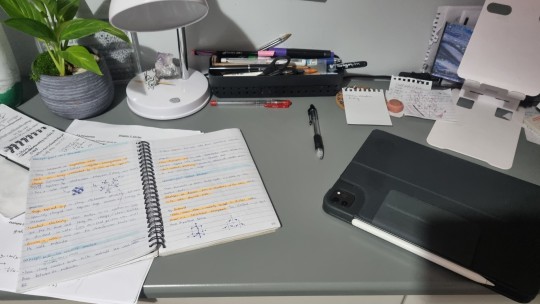
It's way overdue to be tidied but it still functions
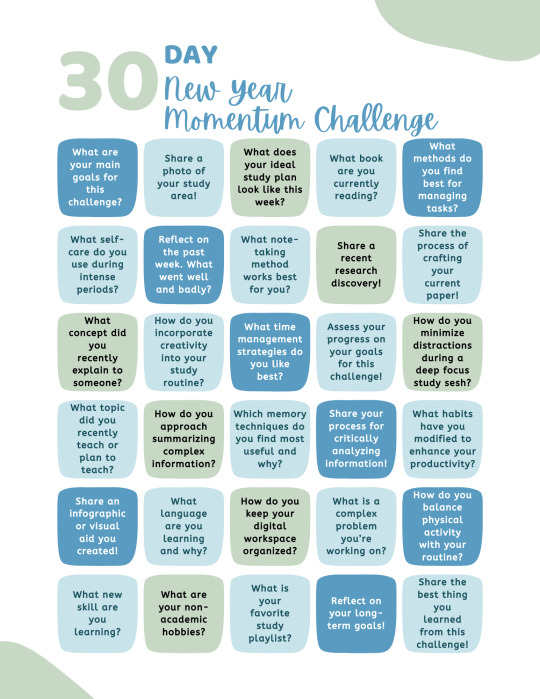
#studyblr#dark academia#light academia#chaotic academia#study motivation#100dop#100 days of productivity#student#study inspiration#100 days of productivity challenge#30nym#productivity#study area#study desk#study plan#burnout#langblr#japanese#Italian#study notes#moon
65 notes
·
View notes
Text
25/04/2024

My birthday is coming soon and I want to prepare for it. I'll try to be more productive and get as much done as I can before I can fully relax and celebrate.
Today I created a template for tracking progress and built a plan of what I want. Now I need to find the strength to stick to the plan. I've been exhausted and in a bad mood for the last few days, so it's hard to find some energy. Even under such conditions, I need to try and I will do it

Productivity:
♥︎ Work on my thesis (1:15 h)
♥︎ Created template for xTiles
Habits:
✘ 6 hours of sleep
✔ yoga
✔ good meals
✔ journaling
✔screen time < 3h.

#productivity 🐈⬛ ྀི#100 days of productivity#productivity challenge#productivitytips#school#study#study motivation#studyblr#studying#study desk#studyspo#high school#school stuff#nature#dark academia#study aesthetic#student life#study buddy#studyinspo#aesthetic#student#100 days of studying#study plan#study tips
34 notes
·
View notes
Text

February 27th. It’s been a while since I’ve updated my learning progress. I’m currently working on lesson 34/60 and have 3 months left. I’ve found a way to work faster on it, which is great. I go to the library every workday and make just one lesson instead of one full day of struggeling through it, that didn’t work for me. But a lot of things have happened this last month so unfortunately I’m not as far as I hoped to be. I got sick again, had a great time at (Dutch) carnaval and then my aunt passed away suddenly. I’ve taken time to mourn with family and now I want to try to go back to normal life again. Sitting at home doing nothing won’t help me deal with it, but I will also take it slow and make room for my feelings and emotions to take the space and time they need. This is your reminder that life happens while we are busy making plans, so it’s perfectly fine if your study plan, your life plans or any other plan you made don’t work out the way you wanted it. Plans can be remade, your mental and physical health matter most.
#studyblr#study motivation#studyspo#study aesthetic#studying#study#study blog#language learning#learning#spanish#language#langblr#saskialearns#february#library#grammar#vocab#motivation#study plan#mental health#physical health
33 notes
·
View notes
Text
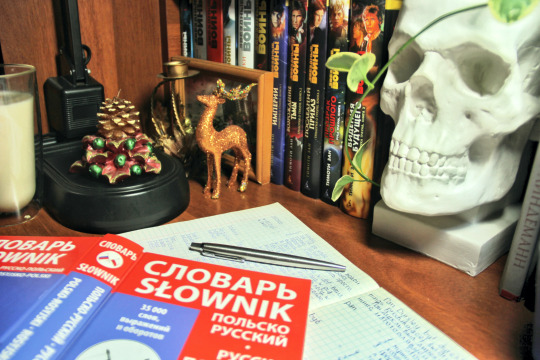
This is my workspace. I am joining the local studyblr community :)
#100 days of productivity#langblr#language#study motivation#studyblr#studying#studyspo#study inspiration#studystudystudy#study space#study blog#study aesthetic#study productivity#study plan#russian studyblr#study buddy#studybrl#study break#studies#polish langblr#study routine#studyspiration#studyinspo#study life#study notes#study movitation#study vibes#study community#study challenge#studycore
17 notes
·
View notes
Text
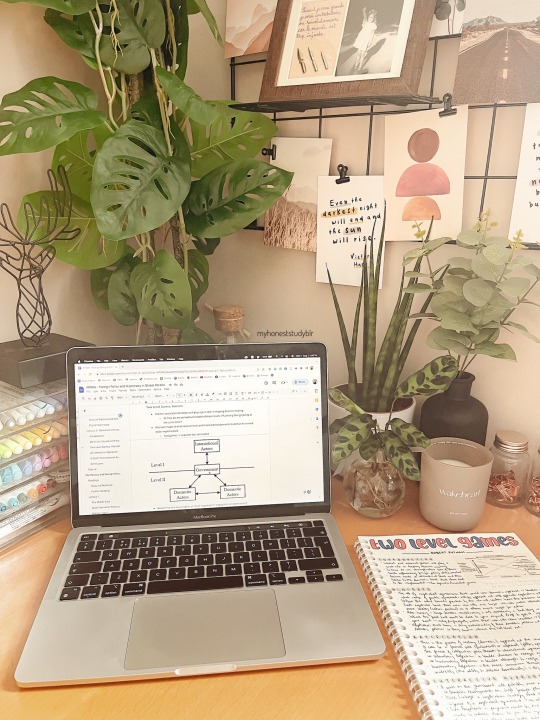
19|10|2023
it is currently storming outside and the vibes as I’m studying are immaculate
#notes#my notes#studyblr#studyspo#study notes#knife gang#light academia#dark academia#desk decor#my desk#study ideas#studying#study plan#desk aesthetic#handwriting
260 notes
·
View notes
Text
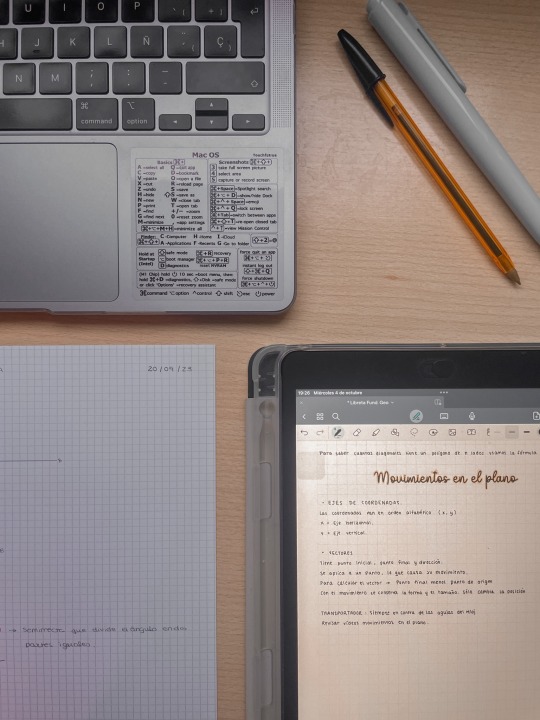
Some maths notes today!
3/100 Days of productivity
#studyblr#notes#new studyblr#study blog#study motivation#small studyblr#100 days of productivity#100 days of studying#study plan#studying
87 notes
·
View notes
Text
Math Tips
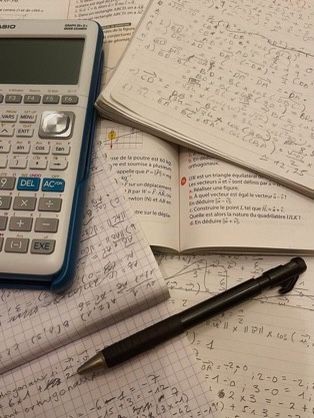
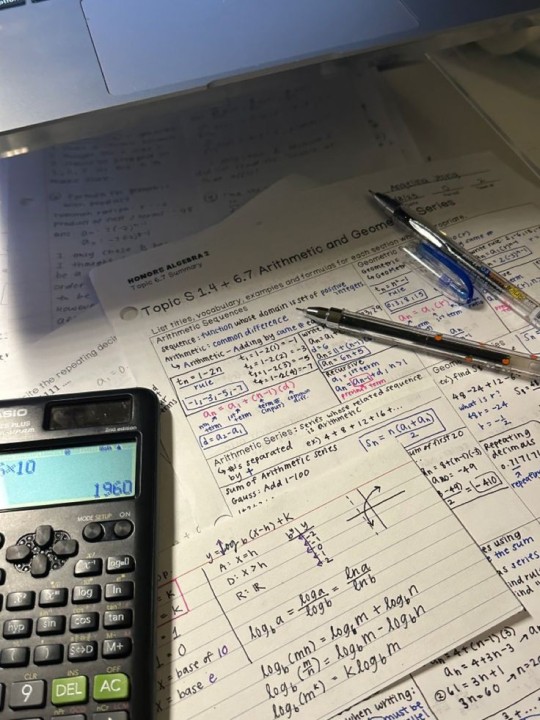
(Pictures are not mine)
Well, let me tell you, we all have this love-hate relationship with this subject, right? The worst part is that when you don't know what the heck is going on, so, as a girl who studied maths (2 Volumes/textbooks) on her own during the year she was homeschooled, here are some tips and tricks that I did to get an A+ in my math finals!
Get your syllabus together
In the beginning I had no damn idea what was going on and it was just confusing. I had to do the first thing I did was taken my index/table of contents and mark the chapters which i knew very well and the ones I had no clue about. And then i arranged them with the marking scheme, like which one carries the most marks etc etc and study accordingly.
Complete lessons/chapters that you already know
When you finish off the things you already know then that's gonna give you the confidence you need even if you know only 1-2 chapters, learn it throughout and make sure that you'll get the answer no matter how twisted the sum is. If you're doubtful about the whole textbook like any normal person.... Start with the easy ones. (I know there are literally really no "easy" chapters, spare me)
Harder chapters need hard work
Most chapters like Trigonometry proofs, Geometry proofs, Algebra, Graphs, Mensuration and Calculus etc need more than minimum effort but here's a trick, what is the common thing in this? Yes, they're all formulae and theorem based which goes to my next point. These chapters are completely based on how much you've understood your basics.
Formulae and theorem cheatsheets
Make a list of all formulae and the theorem used in the book, write them chapter wise and no printouts or digital notes. Take a paper and write it down, no excuses. It helps you while you're practicing, revising and in the last minute review, it helped me damn much. Remember, maths is a sport. The basic formulae must come to you like reflexes.
YouTube is your best friend.
For every single chapter, go and watch the basics and how a sum is done step by step. A recommendation for this is Organic Chemistry Tutor who literally is one of the reasons i passed. He has videos from basic geometry, trigonometry, statistics to calculus. Search for your own YouTubers and be clear with concepts.
Math is fully memorization
Memorize formulae and theorems with the back of your hand, you should be able to recall them within seconds. Be thorough.
Memorize basic math values (if calculator isn't allowed)
Do this if you have a majority of chapters like Statistics, Mensuration, Profit/loss calculation etc, where large numbers are concerned. Memorize the first 10 square, cube, decimal and multiplication values. It may be dry but there are literally songs available for these things, I'm serious, i learnt the first 10 cube roots by listening to Senorita xD Search for rhymes and they'll definitely be many!!
Work it out!!!!!!
Can't stress this enough, atleast 30-40 mins is the minimum for maths. I'm serious, work out each sum, don't ever think it's a waste, you'll see the results. Practice makes perfect. Work out every single sum, from examples to exercise ones cause let's be honest, our examiners love to take problems from every nook and cranny of the book.
Whiteboard method
So, I made this up and it actually works, if you have a whiteboard or anything else, once you completed a chapter, take a random page and whatever sums you have on those two pages, you need to complete within a given time limit. It helps you to identify your weak points and where the hell you're losing both time and effort and not to mention that it gives you confidence boost up.
Hope this helps :))
#mathematics#mathblr#math#maths posting#math problem#mathskills#maths#math student#school#studyblr#exam season#exams#high school#study notes#study motivation#study blog#studyspo#study aesthetic#study with me#studying#student#study rant#study techniques#study tips#studying tips#studyblr community#study plan#trigonometry#calculus#bella_studies
157 notes
·
View notes
Text

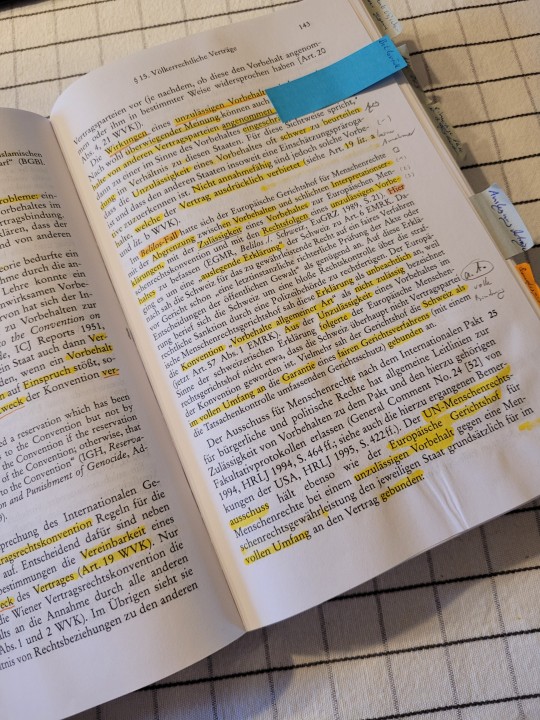
Is there anything more "chaotic academia" and "authentic studyblr" than falling sick at uni, having to cough while sitting in the library and accidentally spitting your tea at your textbook?
#chaotic academia#studyblr#study space#studyspo#university#study plan#lawblr#study motivation#books#library#international law#tea
159 notes
·
View notes
Text
Today's Study Plan/Setup 📖
2/21/24 ~ Study/Work with me!
Playlist
Dark Classical Academia - You’re studying in a large library at midnight 🕯️
Time
30 min with a 15 min break in between.
Using flocus
Study Topics
Work
Ronald Hutton’s Stations of the Sun
Extra Credit
→ Today’s drink is lavender and spearmint tea because I’m sick and my throat hurts.
→ Today’s snack is yogurt
youtube
23 notes
·
View notes
Text
Comprehensible Input Study Plans
If anyone would like to go on a Comprehensible Input/Automatic Language Acquisition/Direct Method journey with me, I have got a list of resources for you! This list is basically going to be: if I was studying a language primarily through comprehensible input, this is the resources I would try in roughly this order.
Japanese:
1. Glossika Japanese Old audio course. Teaches approximately 2000-3000 words (the course has around 3000 sentences but I think some sentences have no new words). Course seems to be a few hundred hours (150-300 hours I'm going to estimate), and lets say 300-600 hours if you repeat audio files to re-listen and study. This is "audio flashcards" materials so sentences are given in japanese then english then japanese. They are "comprehensible input" in that you can completely understand the sentences, but they do teach using english. Also, Glossika courses are easier if you have some basic grammar knowledge first as the course does not explain word order, verb endings, conjugations, particles etc.
2. Comprehensible Japanese youtube channel. If you are a total beginner, I would recommend this resource first and go through a LOT of the material. Then use something like Glossika Japanese old audio courses, some japanese anki sentences deck's audio files, some textbook with a few thousand word's audio files, to study 2000-3000 common words.
3. ***While doing step 1 and 2, I would recommend beginning study of the writing system. Look up some app for "learn hiragana and katakana mnemonics" and study for a few weeks until you're roughly familiar with hiragana and katakana, as afterward you will read them so much you'll learn them more firmly. Look up japanese kanji radicals and read through a table, it should take a few hours or less. Understand that all kanji are built with those radicals (so maybe think of radicals as letters and kanji as the 'word' piece). Learn that kana (hiragana and katakana) stand for syllables, and have no meaning besides sound. Anything can be spelled with kana. Hiragana are usually for japanese words, particles, and conjugation. Katakana are usually for foreign words. Kanji are symbols that stand for a word (or a piece of a word like "airport" is air-port, 2 kanji may build a word). Kanji have various pronunciations depending on the word they are building. Hiragana often attach to the end of kanji words to spell out the conjugations. Look up "mnemonics" if you've never used them before so you can learn how to use them: they are stories you make up to help remember the pronunciation, meaning, or 'radical building blocks' of a new word. For studying kanji there are many options, I personally recommend finding one that includes mnemonics. As a total beginner I recommend: Learn Japanese Today by Len Walsh. It is easy to read in a couple weeks, it's mnemonics/explanations include pronunciation and meaning, it's a good introduction and you can find it free in a ton of libraries/e-libraries. I also recommend the books on japaneseaudiolessons.com if you want mnemonics provided for meaning AND pronunciations, and reading practice, but be aware they are in depth and dense reads. Many people will recommend Heisig Remember the Kanji... and I recommend it with one caveat: do NOT wait to continue your studies until you finish Heisig. If you use Heisig's book, keep studying japanese with other materials at the same time. I wasted 2 years on Heisig's books because they didn't include any actual pronunciations or vocabulary, so I waited to learn real words. You should start learning new words ASAP. I personally recommend you look up what mnemonics are, look up kanji radicals and practice making up some stories to remember them, then start learning real words and making up mnemonics to remember the new kanji words as you learn them (or going to kanji.koohi.com and using someone else's mnemonics story to remember). Mejo's bare minimum advice: read an explanation on radicals (2 hours), read an article explaining japan's writing system (2 hours), cram through a hiragana katakana free mnemonics app with quizzes for 2 weeks, look up mnemonics for kanji and learn how to make the mnemonic stories yourself, cram through Read Japanese Today for 2 weeks, proceed to learn kanji as part of words normally. If you are struggling a lot with remembering kanji words or written words in general, I recommend you check out the "SRS" section further down.
4. Look up a pronunciation guide, on youtube or any site with audio. Listen to it, should take a few hours. This is just to help you get used to the syllables and features you'll hear. You may want to hear some explanations of pitch tone at this point. I'll be real with you: I'm intermediate and still don't really understand pitch tone much. So I figure the sooner you hear about it, the more time you'll have to start figuring it out than I did. My obviously amateur advice (but it worked for me): do your best to pronounce new words the way they sound in japanese (sort of the way English puts stress on words "BLACKbird, old-FASHioned, underSTAND"). Try your best to pronounce as you hear the word, and move on. If you notice later you're making errors, correct them then. As a beginner, do not PAUSE your learning out of fear you will make mistakes or miss something. I feel that can be one of the biggest hurdles in learning a language: dwelling on how to perfectly do something before moving on, and so you never move on, and never learn more. It's better to move forward and learn new things everyday then to HALT all progress out of fear you're doing something imperfectly. So yeah... be aware of features like pitch tone, but also understand it's okay if it takes you a while to hear it, to understand what it means, to correct your mistakes. And this applies to anything in language learning.
5. Japanese Graded Readers: you can search the web for graded readers of various levels. I would recommend starting with the free Tofugu graded readers (they can be found here). The Tofugu books are very easy to start, make sense from context, and can help you feel much more comfortable reading in japanese. If you would like a more textbook approach, I like the following two books: Reading Japanese by Eleanor Harz Jorden and Hamako Ito Chaplin (this book goes slow and very in depth if you want a lot of beginner reading practice), A Japanese Reader: Graded Lessons for Mastering the Written Language (Tuttle Language Library) by Roy Andrew Miller (this book goes fast and it's dense but it will prepare you for reading newspapers and literature). White Rabbit Press has some graded readers. Satori Reader app I highly recommend from early-beginner to intermediate but not ready for real novels yet.
6. Immersion with material for native speakers! Get yourself a translator app downloaded on your phone (I like imabi and while it's subpar I like Google Translate to quickly speak in new words when I'm watching anime). Get an on screen reader OCR translation app if you plan to read a lot of manga (I use Ichigo Manga Translator because it's free). Bilingualmanga.net is a good place to start if you want to read manga, they provide english translations of the japanese and you can copy/paste the japanese text into translator apps. Animelon.com has dual subtitles and click-word lookup if you like watching anime. Parallel translations of books app by Kursx is great for reading novels (it has Text To Speech, click translations of words, parallel translations of sentences) you will need to import txt/epub files if you use this app (annas-archive.org is a good place to find those). If you already have a favorite eReader app (I use Moon+ Reader) then know that most reader apps already have built in click-translation features and text to speech audio. If you use Kindle, kindle has click translations (and if you use Android Talkback accessibility tool it will text-to-speech read kindle books aloud). Amazon Kindle app is probably the easiest place to purchase japanese ebooks and manga. I highly recommend when you start immersion: start with easier materials where you understand the main idea of scenes without word lookups or with minimal keyword lookups. So materials you've seen/read before, slice of life daily stuff where most words are common etc. Also I recommend always watching/reading in japanese primarily before turning on things like dual subtitles or parallel translations: basically at least TRY to understand the japanese before leaning on another language. You want to get used to being primarily in japanese.
7. ***A note on SRS: I go through this more down below in the Chinese section, so please skip down to that. In short: SRS can be a great way to push through that "beginner hump" where you feel you will never learn the language, ASAP. At least, if you can get yourself to reliably do 30 minutes+ per day of SRS regularly. My suggestion for you if you're struggling to go from study materials, to immersion in content for native speakers? Pick SOME SRS study resource for japanese that teaches 2000 words or more. Start it and focus on studying new materials, review OPTIONAL only if you completed 1 or more new sections per day (so study at least 20+ new words per day before doing reviews, cut reviews if you have limited study time). If you're a crammer like me, do 50-200 new words/sentences per day and only review if you have time after that. It should take you approximately 4 weeks on a cram schedule (so 1-2 hours of study per day) to study 2000 words. After that, you can do reviews for another 1-2 months if you want of the 2000 words OR you can jump directly into immersion at that point. That plan will get you from upper-beginner (you know 500-1000 words from comprehensible input, graded readers, audio flashcards, but immersion feels exhausting and you can't understand anything) who just CANNOT handle any immersion, to able to study from immersion primarily, in about 1-3 months. Yes it's 1-3 months of studying 1+ hour a day in flashcards... so you need to be able to concentrate on getting through flashcards. But it will push you over the hump. This is what I did after 2 years of japanese study where I knew 500-1000 words and felt hopeless as an "eternal beginner": I crammed through 2000 cards of Nukemarine's Lets Learn Japanese memrise decks for 3 months. Then I tried to read manga and lookup words: to my surprise I could actually follow a manga plot main idea by just looking up some keywords! I tried playing Kingdom Hearts: and likewise realized I could now play with just some keyword lookups here and there every 3-5 minutes (given I was already familiar with the english version of the game). It made immersion possible for me to do. Once immersion was possible, I continued reviews by immersing and seeing words I'd studied before, and continued learning by guessing new words from context in immersion and looking up words every 5ish minutes or when they looked like key words for main idea understanding. I personally recommend Nukemarine's Lets Learn Japanese SRS decks, as I feel getting through parts 1-6 will make immersion possible (that's what i did) and then the other parts are well structured to help you get the words needed to read novels/watch more complex shows. Nukemarine's decks also has combine sentences, audio and text, new vocabulary, kanji, and grammar points. So if you only have 1 resource you use? It covers the key areas. If you like another SRS course more, use that instead. The main thing is find something teaching AT LEAST 2000 words and get through studying NEW words quickly. Part of the eternal "beginner hump" is people thinking japanese is hard, and taking years studying 300 kanji or 500 words, when the sooner they increase vocabulary the sooner immersion material will become accessible.
(Fun little things: Genki textbooks cover vocabulary immensely slowly in my opinion and I wish each book had at least 2000 words, since they're meant to cover 1 year in college each and typical language introduction books for OTHER languages usually cover 2000 words at minimum... which is doubly annoying because with few cognates, you need more basic vocabulary in japanese to start reading/watching compared to a language like French where with 500 common words and cognates to rely on you can start reading nonfiction...which is what I did. Whereas I NEEDED at least 1000 japanese vocabulary words to start reading anything in japanese. Be aware that a lot of japanese learner material is paced slower than some other languages - like french and spanish - because the writer thinks it's more difficult. the problem is... the lower amount of content per chapter/lesson means less learned per minute... and then japanese is going to take thousands of hours more to learn than a similar language to yours already, so slow learning material is extra frustrating to me. When you run into learning material that presents information slowly? Either find a different learning material, or push through it faster than the learning material recommends. Since Genki 1 and 2 only teach 1700 total... I'd suggest getting through both textbooks in under a year, at least studying their vocabulary sections in under a year. Or get a 2000+ word anki deck and get through it in 3 months lol. A typical Teach Yourself introduction book teaches 2000 words, and certainly expects the student to learn those words at least vaguely in under a year. So personally... I think it's a good idea to push yourself to learn at least that many words in japanese ASAP. If you're a beginner, aim for 1 year (and if it takes longer for some reason that's okay). If you've been studying japanese for years, like I was, and still stuck in the beginner rut? Cram 2000 common words NOW. Go find a word list, an SRS anki deck, get glossika japanese audio files, Something, and get vaguely familiar with a few thousand common words now. Aim to get through the words in 4 months or less, then start immersing (or start intermediate level textbooks/courses if you prefer studying that way, or both).
Chinese:
1. Go through a pronunciation guide (2 weeks or less) like the dongchinese one here. Anything with audio. Look up tone explanation guides on youtube, including on tone sandhi, and then look up a few tone trainer quizzes online and do them every once in a while. All of pronunciation beginner study may take 1 month or less. You're getting used to hearing tones, recognizing tones, recognizing language features, and getting used to pinyin pronunciation.
2. Look up how the chinese writing system works. This may take a few hours to a week. Read a few articles that explain hanzi, that explain and show a table of the radicals and how they combine to build hanzi, how often a hanzi is built of a pronunciation component and meaning component from radicals. The main thing is to learn that hanzi usually are pronounced one way, are a piece of a word (or whole word), and a limited amount of radicals build hanzi (sort of like letters build to make a word). Understanding radicals build hanzi will help you break down new hanzi you see into recognizable radical components. Look up mnemonics if you've never used them before: they are stories you make up to help remember a word or hanzi's meaning, pronunciation, and radicals. Mnemonics can be useful later when learning hanzi, so it's important to know how to make them yourself if you want to use mnemonics later.
3. Hanzi study: you will do this alongside whatever else you do early on. You can use anki flashcard decks for studying hanzi (I recommend searching "chinese hanzi mnemonics anki deck" or "chinese hanzi mnemonics memrise" or whatever app you use with "mnemonics"). I personally mostly relied on a book which had pre-made mnemonics for 800 hanzi, and it gave me a solid foundation. (My FAVORITE chinese study book, it indirectly is also how kanji in japanese got eons easier for me, I love it intensely more than Heisig lol: Tuttle Learning Chinese Characters: (HSK Levels 1 -3) A Revolutionary New Way to Learn and Remember the 800 Most Basic Chinese Characters). I simply read through the book for 2 months. After that I just learned new words regularly (through comprehensible input, graded readers, SRS decks of common words/sentences), and made up my own mnemonic stories when I had a hard time remembering a new hanzi. I recommend that if possible you find a hanzi resource that provides pronunciation, meaning, and example words. And that the resource includes mnemonics if they help you remember things better. I recommend using an SRS program if you like using SRS apps, and if that study method works well for you. You will likely be studying hanzi or words with a focus on remembering their hanzi for at least 6 months, possibly 1-2 years, so it's okay to take 1-2 months to search for resources and then decide on using something you really like using. I also recommend getting a hanzi resource that teaches AT LEAST 2000 hanzi, ideally all hanzi on the HSK (but the HSK recently changed so just do the best you can), and at minimum you're going to want to learn around 1000 hanzi (roughly the amount on HSK 4 which is when immersion starts to feel possible). The exception: the book I heavily relied on only taught 800 hanzi, but it gave me a strategy to further study new hanzi as I encountered them later in words... so that book in combination with any vocabulary resource and you should smoothly be able to learn over 1000 hanzi in the first 6 months. I learned about 2000 hanzi in the first 6 months using that book for 800, and then Ben Whatley 1000 Common Chinese Words and Ben Whatley 2000 Common Chinese Words in memrise. It personally helped me to learn a majority of hanzi in the context of words. The memrise decks I spent 4 weeks cramming through, then continued reviewing the words by running into them during immersion. Alternatives: Chinese Spoonfed Anki deck has words in sentences, theres a LOT of anki decks specifically for learning hanzi with mnemonics and I think all are fine if they have audio pronunciation and meaning (and ideally example words).
4. ***Optional: read through a grammar guide summary. This is not part of comprehensible input method, but I did it and it helped me so I figured I'd mention it. I simply read through all the lessons on this site (without doing the exercises) and it took me about 3 weeks.
5. Start Comprehensible Input learning materials. You can start immediately, or after 1-2 months of preparing with the materials above. Comprehensible Chinese is a good youtube channel to start with.
6. Graded Readers. These can be started soon after starting to learn new words with comprehensible input lessons (like Comprehensible Chinese youtube). Mandarin Companion graded readers start at only 50 words so a total beginner could start there, then just gradually read the higher level graded readers until you are reading the highest unique word count graded readers Mandarin Companion has. After that, I recommend downloading Pleco app (***which you will use a lot for other things too), and browsing the graded readers offered for sale on Pleco. They're often 2 dollars for individual stories to 20 dollars for collections of stories/long stories, and reading them in Pleco you have click-translations, text to speech, extensive dictionary entries, and mtl parallel text translations of passages. Some of the graded readers you can buy on Pleco go up to 2000+ unique words, after which you are certainly ready to move to immersion with novels for native speakers. If you want to move to immersion ASAP, I would recommend using graded readers that go up to 800-1500 unique words (I used Mandarin Companion 800 word graded readers and Sinolingua 1500 word graded readers) then going to Heavenly Companion's site (*more details later) and starting with novels for native speakers that start at 1000-1500 unique words.
7. Aim for trying to learn 3000 common words (you can aim for at least 1000 if you're desperate to move on to immersion). Glossika Chinese old course audio is an audio flashcard option to learn 2000-3000 words (audio flashcards teach with chinese sentences then english translation so you can comprehend what is said). The sentences are around 300 hours, then more hourse depending on how much you re-listen to study. Chinese Spoonfed Anki audio files are another good option (have around 7000 sentences, 19 hours, I imagine the sentences teach at least 4000 words). You could use these kinds of resources as a supplement to Comprehensible Input youtube videos and Graded Readers, to keep growing your vocabulary and reviewing things you've learned. (You may have noticed at this point, I'm offering 3 lesson options: videos on youtube, audio flashcards, and graded readers. Depending on the study activity you like best, you may find yourself relying more heavily on one of these 3 and that's fine. Just aim to keep increasing your vocabulary no matter what you rely more on - so if you use youtube videos be aware you may need supplemental vocabulary exposure, and aim to get some listening AND reading practice - so if you use audio flashcards primarily then try to get some transcripts and read along occasionally or anki/memrise companion flashcards to read or turn on chinese subtitles on Comprehensible Chinese when you do occassionally do a video instead of audio flashcards. If you read graded readers mostly, try to listen along to the audiobook or text-to-speech sometimes so you get some listening practice).
8. ***Optional: SRS. Spaced Repetition Study. I did not use SRS much, but I did cram study this way for around 4 weeks in the first 6 months of studying chinese, because it really helped me get vague recognition of 2000 common words in written form ASAP. If you can focus on flashcards/flashcard apps for 30 minutes to 1 hour regularly, this is possibly the fastest way to get vaguely familiar with new vocabulary so you can make immersion doable and easier ASAP. For japanese and chinese in particular, SRS may be the route to go if you feel you "cannot get over the beginner hump." If you are not using graded readers much, you may need some kind of SRS study to get reading practice in and review of written form of words. (You can actually do SRS study with paper flashcards you make or a printed out wordlist you read through or a wordlist website you have open on the computer, all SRS really is amounts to studying the least amount of repetitions you'd need to review information right before you forget it... something like study today, then tomorrow, then in 3 days, then in 1 week, then in 2 weeks, then in a month, then in 2 months, then in 4 months etc). I recommend Chinese Spoonfed Anki deck for chinese since it's got thousands of words, grammar examples, audio, text, and it's a solid foundation to jump to immersion from. I used "2000 common HSK words" deck on memrise, it had no sentences, just audio and text, it worked fine for me and took 1 month to cram through. This is my advice for people who want to get over the endless "beginner hump" or who like me want to immerse ASAP and get past learner materials. It can also be found up in the japanese section. Cram! If you've done hundreds of hours listening to Comprehensible Chinese, audio flashcards, and reading graded readers, but still find immersion too hard or still find you have not learned over 1000 words? Or find you're really struggling with hanzi recognition? Look up an SRS app like anki or memrise, look up an SRS course (again I'd say just use anything with 2000+ words and audio and text, like Chinese Spoonfed anki deck). Do the SRS app 1-2 hours a day for 2 weeks, prioritizing studying 50-200 new words per day. Only do reviews if you have time at the end, after getting through your 50-200 new words goal daily. At the end of 2 weeks you'll het through 1000 words, then spend 2 weeks getting through the backlog of reviews. Then for 2 weeks go through 50-200 new words daily again, 1-2 hours per day, skip reviews unless you have time. After those 2 weeks you'll have gotten through all 2000 words. Take another 2 weeks to do reviews now if you wish (or just skip it). It will take approximately 1-3 months to get through 2000 common words and have a vague familiarity with them. At that point, you can start immersing and stop SRS app usage (unless you like SRS apps, in which case you might want to transition to 10-30 minutes daily with 5-20 new words daily and no more so you don't get overwhelmed). This is how I get vague familiarity with a few thousand common words ASAP. Once there's vague familiarity, when you immerse you might look up those words and 'review' them a few more times by looking them up until they stick in your memory, but they won't be totally unfamiliar. And you will NEED them to understand the immersion content, so your brain will try to remember them quickly since they're needed daily and used daily in immersion. The SRS apps also work well for drilling hanzi when you're trying to learn the first 1000 common hanzi or so. If you find nothing else is helping you get vaguely familiar with hanzi recognition, try an SRS app of 2000+ common hanzi with mnemonics for a couple months.
(***A small warning: a lot of apps "use SRS for their study cards" but how fast you go through new words depends on the app. If you're trying to get vague familiarity with a lot of words quickly, either pick an app that doesn't take you more than 1 hour to get through 50+ words, OR honestly pick a regular word list or a bare bones Anki deck where you know you can easily read through 100 words in 1 hour). One thing that slowed me down a LOT is apps where I'd see 20 new words an hour... I could watch literally any show as a beginner and get exposed to 20 new words in less time. I try to avoid picking resources that slow down my exposure to stuff to learn.
9. Immersion time! If you're extremely tolerant of ambiguity and/or like looking words up, you can immerse as SOON as you can follow the main idea of a scene with just the help of looking up 1-2 keywords for meaning per scene (or without looking up anything). Think about how you felt when reading your first Graded Reader: it probably had more words than you actually knew yet, so it felt HARD, but you could at least follow the main idea of what was going on. And if you couldn't follow the main idea, you could get by on just looking up 1-5 unknown words per page to understand the main idea. And by the end of the graded reader, you didn't need to look up any words to grasp the main idea. If it was a rather easy graded reader, you might even have understood almost everything including most details without any word lookups by the end of the book. That's the feeling you want to get with your immersion materials, at least ideally. And after a few months of immersion, once you've learned more words and gotten comfortable "understanding what you already studied" then some easier immersion materials should feel like a graded reader used to feel. The first few months of immersion I'd recommend picking easier material: shows/books with few unique words (ideally less unique words than you know so if you know 2000 words then picking a kid's book with 1000 unique words), shows you've seen before in your native language (so you can guess what the words mean because you know what happens in those scenes), books based on shows you've seen, books for kids, reading summaries before watching/reading something (so you have prior context to guess what words mean because you know what should be happening). At first, you will have to learn how to "understand what you already studied" so you'll be practicing understanding words you know at speaking speed, in the grammar of actual sentences, reading words you maybe haven't read much, listening to words you maybe haven't listened to much, getting used to accents and emotion and background noise, getting used to understanding stuff you've studied QUICKLY because its all so much quicker than in learning materials. It will feel hard, stick with it for a few months, and eventually you can tolerate immersing for longer time periods and get better at immediately understanding stuff you already studied. At that point, you can gradually start picking more difficult and challenging immersion material.
***If you find immersion INTENSELY difficult and you can NOT understand the main idea, even when you look up key words, or you notice you need to look up like 20 key words per 5 minutes to even guess the main idea? Even after a few months of trying to immerse and see if it gets easier? You may benefit from going to study more words. If you don't like ambiguity and get frustrated by only vaguely understanding things, you'll probably be the kind of person who prefers to study more words BEFORE immersing. I would recommend a. cram studying 2000-3000 words in some SRS app or audio flashcard course like glossika (and if you have time and energy you may even wish to cram study 5000-7000 words... but if it's been over 5 months, you may just be avoiding immersion and hoping Ever More Vocabulary will make it easier... it won't at a certain point. You have to practice immersion eventually for immersion to get easier). b. Reading a LOT of graded readers. Graded readers will feel the most like immersion, because they force you to read a LOT all in the target language. Read increasingly difficult graded readers, so for chinese this is where you'd read 5+ 2000 word graded readers. Practice reading graded readers without relying on word lookups and attempt to grasp the meaning from context, so you can practice skills you'll need in immersion in an easier enviornment. Try to read graded readers through multiple times, attempting to read FASTER the second and third times, to practice comprehending things you have learned faster... this skill is needed for immersion, and practicing it now will make immersion easier. Listen to audiobooks/text to speech OF graded readers, and listen repeatedly until you comprehend most of what you hear. Graded readers in particular will help you both increase vocabulary AND develop the skills you'll be using and relying on a lot in immersion like: learning new words from context, parsing sentences, following audio at spoken speed (if reading along to an audiobook), getting a feel for how difficult a material is to you and if you personally can comprehend enough to learn new words from context alone or if you personally need to look up some key words (and how to identify key words for understanding quickly then move on), being engaged with only the target language for several minutes to an hour without much of another language to rely on.
For chinese, I recommend the Heavenly Path site to find immersion materials if you don't know where to start. You can start with their stuff recommended "Newcomer" with immersion materials that are around unique word counts of 1000, so they should be the most easy to transition into after doing some graded readers and studying 1000-3000 words. In particular I recommed starting with 秃秃大王 if you can read an 800 unique word Mandarin Companion graded reader, or a 1000-2000 unique word sinolingua graded reader. It is excellent for a beginner, it's not too long so you'll be able to finish it in a few days to a month (I think it took me 3 weeks of 30 minutes per day). After 秃秃大王, the other Newcomer recommendations should feel doable to you, and then from there just progressively pick slightly harder novels with slightly higher unique word counts when you're no longer running into as many new words as you wish to. Apps like Pleco (in free version you can copy-paste text into it's Clipboard Reader section, in paid you can import files) and Readibu (copy-paste in a website page to read the webnovel in the app, or find webnovels in Readibu's recommendations) let you read webnovels and click-translate words. Pleco has a ton of other features (and is a great free dictionary app so I suggest downloading it). Parallel translations of books app by Kursx is another good app for reading chinese novels, you'll need to import the novel files though. All reader apps have click-translate and text to speech tools like Moon+ Reader, Kindle, Kybook Reader, so if you have a favorite eReader app you can probably just open chinese epubs or txt files in your preferred app. I use Microsoft Edge for nothing else, but its Read Along tool has the most natural sounding text to speech I've ever heard, if you want to listen to text as you read. All web browsers have click-translate tools (sometimes you need Google Translate installed as an app on your phone, then just hold down any word/sentence you want a translation of when on a web browser and you'll have a Translate option). So honestly, any web browser and webnovel link and you'll be all set to read with click-translations and text to speech. If you like manhua, Bilibili Comics app has english and chinese versions of comics so you can read manhua in chinese, then read the english versions if you want to look up a particular word or check your understanding of the plot. If you like shows, youtube has a ton of free cdramas, often with chinese subtitles, so you can pause shows to see words and then go to a translation app of your choice (Pleco, DeepL, BaiduTranslate, Google Translate) and look up words. LingoTube is a free app where you can open youtube videos and get dual subtitles, audio line replay, click-translations of words.
60 notes
·
View notes